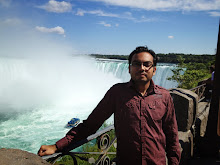Hamid Karzai standing next to Faisal Ahmad Shinwari and others after winning the 2004 presidential election. The last king of Afghanistan, Zahir Shah is sitting at the right.
Politics in Afghanistan has historically consisted of power struggles, bloody coups and unstable transfers of power. With the exception of a military junta, the nation has been governed by nearly every system of government over the past centuries, including a monarchy, republic, theocracy and communist state. The constitution ratified by the 2003 Loya jirga restructured the government as an Islamic republic consisting of three branches, executive, legislative and judicial.
The nation is currently led by the Karzai administration with Hamid Karzai as the President and leader since December 20, 2001. The current parliament was elected in 2005, and among the elected officials were former mujahideen, Islamic fundamentalists, communists, reformists, and Taliban members. 28% of the delegates elected were women, three points more than the 25% minimum guaranteed under the constitution. This made Afghanistan, long known under the Taliban for its oppression of women, 30th amongst nations in terms of female representation.[106] Construction for a new parliament building began on August 29, 2005.
The Supreme Court of Afghanistan is currently led by Chief Justice Abdul Salam Azimi, a former university professor who had been legal advisor to the president.[107] The previous court, appointed during the time of the interim government, had been dominated by fundamentalist religious figures, including Chief Justice Faisal Ahmad Shinwari. The court issued several rulings, such as banning cable television, seeking to ban a candidate in the 2004 presidential election and limiting the rights of women, as well as overstepping its constitutional authority by issuing rulings on subjects not yet brought before the court. The current court is seen as more moderate and led by more technocrats than the previous court.
Elections and parties
National Assembly of Afghanistan in 2006
The 2004 Afghan presidential election went relatively smooth in which Hamid Karzai won in the first round with 55.4% of the votes. However, the 2009 presidential election was characterized by lack of security, low voter turnout and widespread electoral fraud.[108][109][110] The vote, along with elections for 420 provincial council seats, took place in August 2009, but remained unresolved during a lengthy period of vote counting and fraud investigation.[111] Two months later, under U.S. and ally pressure, a second round run-off vote between Karzai and remaining challenger Abdullah was announced for November 7, 2009, but on the 1st of November Abdullah announced that he would no longer be participating in the run-off because his demands for changes in the electoral commission had not been met, and claiming a transparent election would not be possible. A day later, officials of the election commission cancelled the run-off and declared Hamid Karzai as President of Afghanistan for another 5 year term.[109][110]
The Afghan government ranks as one of the top corrupted administrations in the world. In November 2009, Afghanistan slipped three places in Transparency International's annual index of corruption perceptions, becoming the world's second most-corrupt country.[112] A number of government ministries are believed to be rife with corruption, including the Interior, Education and Health. President Karzai vowed to tackle the problem in November 2009, he stated that "individuals who are involved in corruption will have no place in the government."[113] A January 2010 report published by the United Nations Office on Drugs and Crime revealed that bribery consumes an amount equal to 23 percent of the Gross Domestic Product (GDP) of the nation. Citizens are forced by corrupt government culture to pay more than a third of their income in bribes.[114]
The Afghan government ranks as one of the top corrupted administrations in the world. In November 2009, Afghanistan slipped three places in Transparency International's annual index of corruption perceptions, becoming the world's second most-corrupt country.[112] A number of government ministries are believed to be rife with corruption, including the Interior, Education and Health. President Karzai vowed to tackle the problem in November 2009, he stated that "individuals who are involved in corruption will have no place in the government."[113] A January 2010 report published by the United Nations Office on Drugs and Crime revealed that bribery consumes an amount equal to 23 percent of the Gross Domestic Product (GDP) of the nation. Citizens are forced by corrupt government culture to pay more than a third of their income in bribes.[114]

